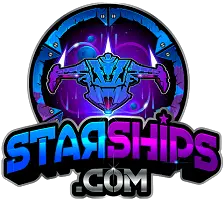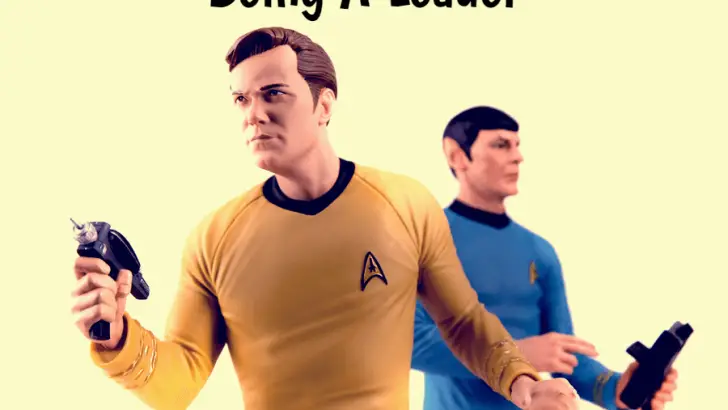James Tiberius Kirk is arguably Starfleet’s most famous captain of all times. This can be attributed to a host of accomplishments credited to him. His fleet has saved the earth multiple times under his leadership.
He prevented the doomsday machine from smashing the planet into rubble. He somehow maintained the power balance between the Federation and the Romulan Star Empire. He fought against the Nazis and negotiated peace with the Klingon Empire, among other feats.
He was a great leader throughout the five years he was in charge of the USS Enterprise and the subsequent commands. Captain James Tiberius Kirk’s character is depicted as a leader who led his troop through unchartered territory, coming out victorious every time.
Captain James Tiberius Kirk’s success was never a chance occurrence. His way of leadership demonstrates that he had a great understanding of the role. His character also shows that he had mastered maintaining a team that kept succeeding together even when faced with imminent danger.
Today we uncover just how he could do all this, hoping that we can learn some leadership lessons from his example. Below are five nuggets we derived from his character that we feel are ideal for any leader to keep calm and functional even when faced with the unknown.
The Lessons
1. Learning Is a Continuous Process
Although he was outwardly perceived as a ladies’ man, Captain James Tiberius Kirk had a slightly subtler reading passion. Don’t be fooled by that outward character. He was constantly learning, which helped him and his crew through many missions. Lieutenant Commander Gary Mitchell, who served under his command, once famously referred to him as a walking stack of books.
A great example of when this extensive knowledge paid off is when Captain Kirk has to engage a Goran captain in single combat in Arena, the 18th episode of Star Trek: The Original Series (TOS).
Gorns are an advanced species, so the Goran captain had a super physical advantage. Captain Kirk used the knowledge he had acquired to forge a rudimentary shotgun from available materials with which he vanquished the Goran.

There is no need for a 23rd-century Starship captain to know anything about gun powder, which was outdated. Starfleet officers used the more advanced phasers and photon torpedoes at war. The captain somehow did, and it saved the day when the occasion called for it. The same drive for knowledge that resulted in him having this information is what had led him to the stars years earlier.
Knowledge will help you maneuver out of any fix regardless of the kind of outfit you are running. The more you know, the more tools you will have to be creative with, which provides a bigger basket of solutions. Great leaders should be able to steer their charges to functional solutions.
2. Listen to Advisors with Diverse World Perspectives
The Captain had two main advisors: Commander Spock, who was a Vulcan and therefore inclined to live by reasoning and logic while keeping emotions at bay, and Dr. Leonard McCoy, who was more compassionate and reliant on science. The two were often at odds and severally recommended conflicting approaches.
They brought divergent arguments from their points of view. Captain Kirk would take advice from either or consider both arguments and develop a different action plan.
The captain, therefore, had the view of two advisors and his own. He had great confidence in his leadership skills and did not mind being surrounded by people with their own opinions.
Most leaders will have yes men around them. This means no one is in a position to question their actions. Organizations need to have leadership that allows different opinions, especially in developing innovation. This helps in solving problems. James T. Kirk’s character shows incorporating different opinions in an organization avoids group thinking and aids in innovation.
3. Lead from the Front
Captain Kirk was always willing to expose himself by being on the front line whenever there was a tough mission. Being constantly on the ground ensured he could accurately assess the environment and develop relevant plans, which led to favorable results. Having each other’s backs and sharing dangers and victories creates a special bond in the team. This is seen in every challenge that the Starfleet takes on.
It is very convenient to delegate when you are the leader to the extent that you are never on the ground. You will still have to make decisions that influence the entire organization. Some of these may not be what is required at the moment.
When you are not in touch with what is happening on the ground, it will be much harder to appreciate the team. On the other hand, if you are consistently engaging them, your team tends to build trust in your decision-making as they can tell when you are aware of what is happening. Captain Kirk’s crew trusted him with the decisions since he personally understood the risks.
4. In Life Play Poker, Not Chess
In the 10th episode of TOS, the USS Enterprise faces off against a huge powerful alien vessel, which they identify as the Fesarius, the flagship of the First Federation. Balok, the commander of the Fesarius, is about to destroy the USS Enterprise for trespassing into First Federation territory and destroying their marker buoy. He gives them 10 minutes to pray to their deities.
1st Officer Spock, using his Vulcan logic, has resigned to their imminent fate and tells Captain Kirk that they have been outplayed using a chess metaphor that they have no more moves to make.
Kirk reiterates that they should be playing poker and not chess. He proceeds to bluff Balok that the Enterprise is armed with ‘Corbomite,’ a lethal substance designed to reflect the force of any weapon back to its source, destroying the attacker.
He claims to have no regard to whether the Enterprise will also be destroyed in the process. They end up being invited into First Federation space and somehow convince Balok that their ship is superior, living to fight another day.
Traditional leadership strategists like Vulcan base their plans on chess moves to come out on top after maneuvering through the rules. Since the rules are already determined, everyone knows them, and you will expect them to also be plotting ways to come out on top.
On the other hand, Poker is not dictated by rules and allows you to take advantage of every opportunity in life. It is more about understanding your opponent’s strengths and weaknesses than the cards you have at hand. This results in better outcomes that are not limited by what you had to begin with.
5. Blow Up the Enterprise
It is very obvious throughout the Star Trek series that the Enterprise is Captain Kirk’s, first love. The program is full of innuendo, suggesting it prevents him from developing any tangible relationship, even with family.
He still had to destroy it in star Trek III- The Search for Spock, so he could defeat the Klingons. This took a heavy toll on him; the whole scene is somber to reflect the loss. The crew resorts to commandeering a Klingon Vessel to get back to Vulcan. In the end, they come out victorious, having accomplished their mission.
Great leaders are always passionate about what they do. This may come with attachments to certain products, services, or premises. Every once in a while, it is necessary to get rid of them or detach because they may be bringing productivity down or there are new developments that render them obsolete.
Painful as it is, a good leader lets go and adapts to the new demands for the organization’s greater good, even if it involves surviving in a Klingon vessel.
Conclusion
In all his years of service to the Federation, Captain James Kirk exemplified many leadership lessons that can be applied in our daily lives and work. We have to keep encouraging innovation while heeding advice from people with different skills, experiences, and opinions to enrich our own knowledge.
We also have to ensure that we are constantly exploring and pursuing knowledge. This equips us with the creativity to come up with solutions to different problems.
Occasionally, we will need to go to the ground with our team members to better understand what they need and win their trust. We also need to understand how our competitors think and proactively change course according to circumstances we are dealt with.
We also learn that we have to get rid of the rigid way of thinking and open ourselves to the world’s limitless possibilities.
There is no greater tribute to Captain James Tiberius Kirk than using this inspiration to get your team to unscaled heights and leaving your own legacy.





